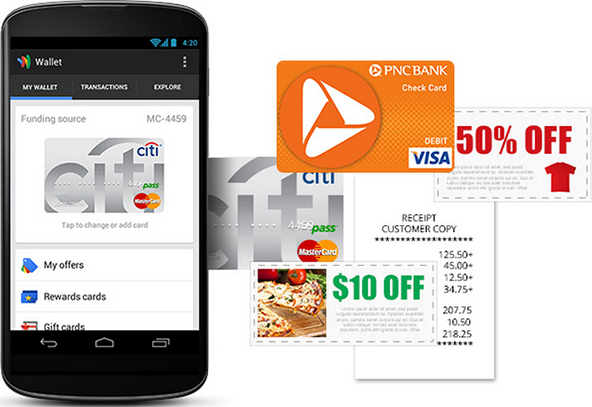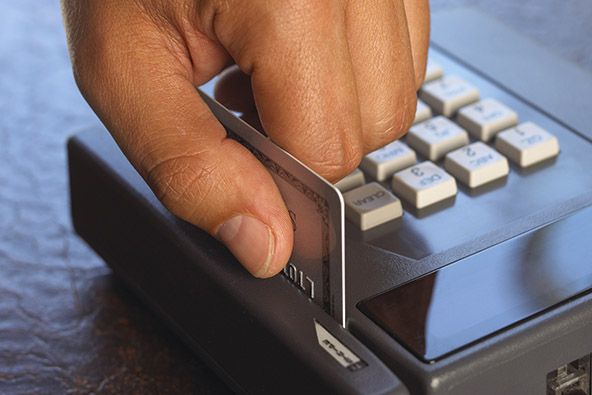Google Finally Troubled by Wallet’s Money Sinkhole

Google Wallet is in trouble, we are reminded this morning. The search giant is finally showing signs that there may actually be a limit to how much money its mobile payments initiative would be allowed to lose, without showing much to show for it, before it pulls the plug on it. Of course, by all appearances (and as one might have expected), that limit seems to be well into the billions, but the burn rate is evidently high enough to have prompted CEO Larry Page to take some decisive actions earlier this year and replace Wallet’s leadership.
But can Wallet be saved? Is the concept behind it viable enough to justify the huge amounts of effort and resources the search giant is expending? I am sure that Page, Brin, Schmidt and the rest of Google’s leadership must be at least somewhat less convinced in Wallet’s bright future than they were a couple of years ago when, as Businessweek reminds us, then-CEO Eric Schmidt called near-field communication (NFC) — the technology behind Google Wallet — a “mega-scale opportunity”. And there is a good reason why one might question NFC’s potential — while Google Wallet, Isis and a handful of other NFC-based mobile payments initiatives have been busy pouring huge sums of money into a seemingly bottomless NFC pit, Square has been growing at a break-neck pace and Starbucks has continued to be the unexpected mobile payments leader — and both companies are using much simpler technologies. So let’s take a look at the latest.
A Money Pit
Here is how Businessweek’s Mark Milian and Ari Levy have summarized Google Wallet’s current state:
Google Wallet (GOOG), the mobile software that allows Android users to pay for purchases online and in stores with their phones, has become a money pit. The company has dedicated hundreds of developers to Wallet and spent about $300 million to acquire digital payment startups to help develop the app. But consumers aren’t sold. Wallet has been downloaded fewer than 10 million times in the two years since its launch, according to Play, Google’s app store.
And there are three big reasons why consumers haven’t warmed up to the service. Milian and Levy have identified one of them:
Of the four largest U.S. wireless companies, only Sprint Nextel (S) supports it. Verizon Wireless, AT&T (T), and T-Mobile USA (DTE) block Wallet on their phones and have teamed up to develop their own software, called Isis.
The second reason is that there still are precious few smartphone models that actually support NFC and the iPhone is conspicuously not among them. The third reason — and I believe that this is the biggest one — is that there are very few merchants whose point-of-sale (POS) systems are NFC-compatible. And the problem is that replacing the existing POS infrastructure is both a hugely expensive and time-consuming proposition.
In the meantime, while Google Wallet has been struggling (by the way, Isis — its biggest rival — has been doing even worse), Square is now processing $15 billion in transactions on an annualized basis and Starbucks is processing four million transactions every week, up from two million at the end of 2012.
The Issue — Getting People to Use It
Google Wallet wasn’t designed to generate revenues from processing fees, the way, say, Square was. Rather, as we have discussed many times before, the search giant’s objective has always been to use the payment service to collect ever more consumer data that could then be used for fine-tuning its ads — data crunching is what Google does. The trouble is that using Wallet for data collection purposes is proving — unsurprisingly — a rather expensive proposition. As Milian and Levy remind us:
Google pays such high fees to the credit-card companies it works with, though, that it loses money on every transaction, says Osama Bedier, who stepped down as head of Wallet on May 20 and will shortly leave the company.
But it’s even worse than that. As I’ve discussed on a couple of occasions before, in most Google Wallet transactions there is an intermediary stage where payments are actually processed on another card — a MasterCard prepaid card — before the one of the user’s choice gets involved. That means that an interchange fee (the fee charged by a card’s issuer) is assessed twice for each Google Wallet transaction and so makes the process much more expensive than it normally is — and, although I haven’t seen it stated explicitly, by all appearances the tab is picked up by Google.
So, that being the case, what is Google to do? Milian and Levy suggest that:
To succeed, Google Wallet must do more to show advertisers that shoppers who see its digital ads as they stroll they stroll down a store aisle are actually buying their products, says Dana Stalder, a former PayPal executive and a general partner at venture firm Matrix Partners.
Well, I think that before they start worrying about advertisers, Google Wallet’s executives’ priority must be finding a way to get consumers to actually start using their service, which until now they have been unable to achieve and Bedier has paid for the failure with his resignation. And this has truly been a failure on a remarkable scale — since its launch two years ago, Wallet has been downloaded fewer than 10 million times.
The Takeaway
So what does the future hold for Google Wallet? Milian and Levy tell us that Google has already scrapped “projects designed to broaden Wallet’s appeal” and is scaling the whole thing down:
Google is weighing whether to scrap a Wallet credit card it’s developing, according to three people familiar with the project. It’s already changed its plans to build a Wallet-compatible Android tablet that can read credit cards for brick-and-mortar retailers, intended to rival Square’s card-reading tool, according to four people familiar with that project.
Of course, one can read these actions as designed to re-focus the team on the immediate task at hand — establishing Google Wallet as a legitimate payments platform. Will the search giant succeed? I don’t know, but they don’t have an infinite amount of time to get it right.
Image credit: Google.


SG
Is so much talk About Google Wallet
Gaston Schwabacher will go down in history as the inventor of
Electronic Wallet
owner of the Intellectual Rights of Patent PI 9500345
INPI Brazil in 1995.
Even before Google own existence.
Gaston Schwabacher
Will be among the great creators, inventors as:
Bell, Da Vinci, Daimler, Edison, Volta, Watt and many …
others.
But enjoy the dollars.
Only Sergey Brin and Larry Page and other corporations?
For all we know Gaston Schwabacher not yet received their royalty
What is strange is the Google profile and its
creators.
To be fair, honest. Education that comes from the cradle.
“Do not be evil”
Taking advantage of the space.
Digital Wallet or (Google Wallet), intellectual property of Gaston Schwabacher, patent PI9500345
Sergey Brin e Larry Page. “Do not be evil”. “You can make money without doing evil.”
Principles of Google.
Gaston Schwabacher not deny the merits of Google
But Gaston Schwabacher would appreciate your Royalties intellectual property.
———————————————————–
Aproveitando o espa?ºo.
Carteira Digital ou (Google Wallet), propriedade intelectual de Gaston Schwabacher, PI9500345 patente
Sergey Brin e Larry Page. “N?úo seja mau”. “Voc?¬ pode ganhar dinheiro sem fazer o mal.”
Princ?¡pios da Google.
Gaston Schwabacher n?úo negar os m??ritos do Google
Mas Gaston Schwabacher gostaria de receber seus royalties de propriedade intelectual.